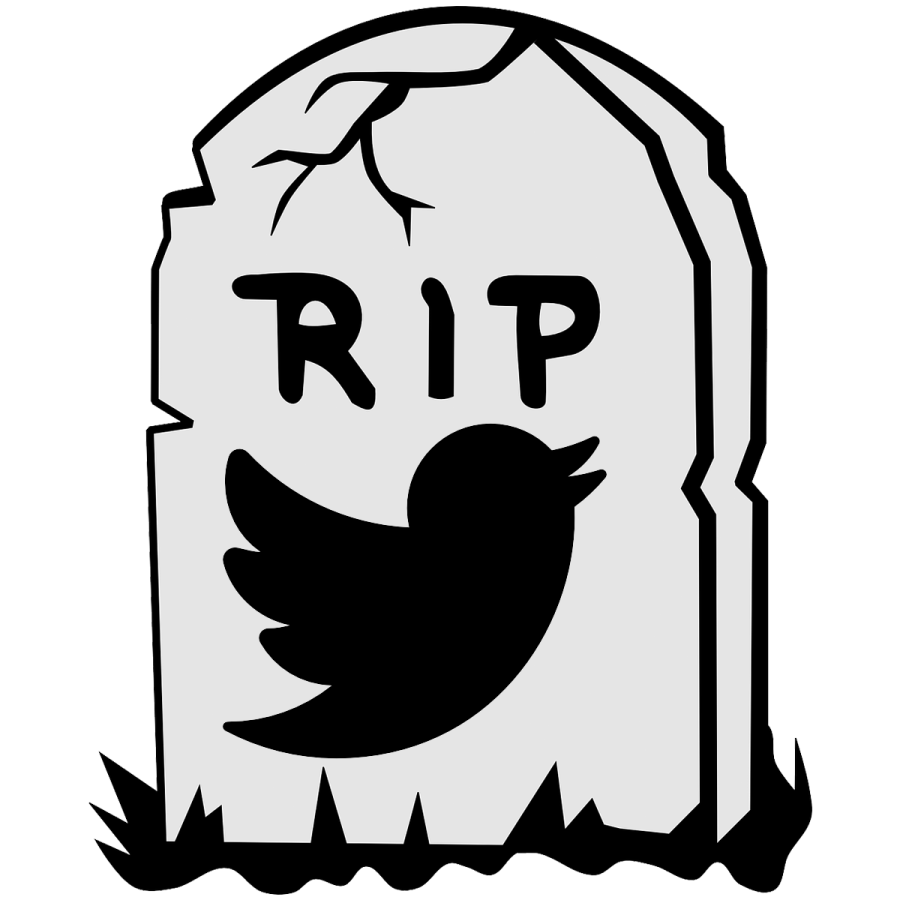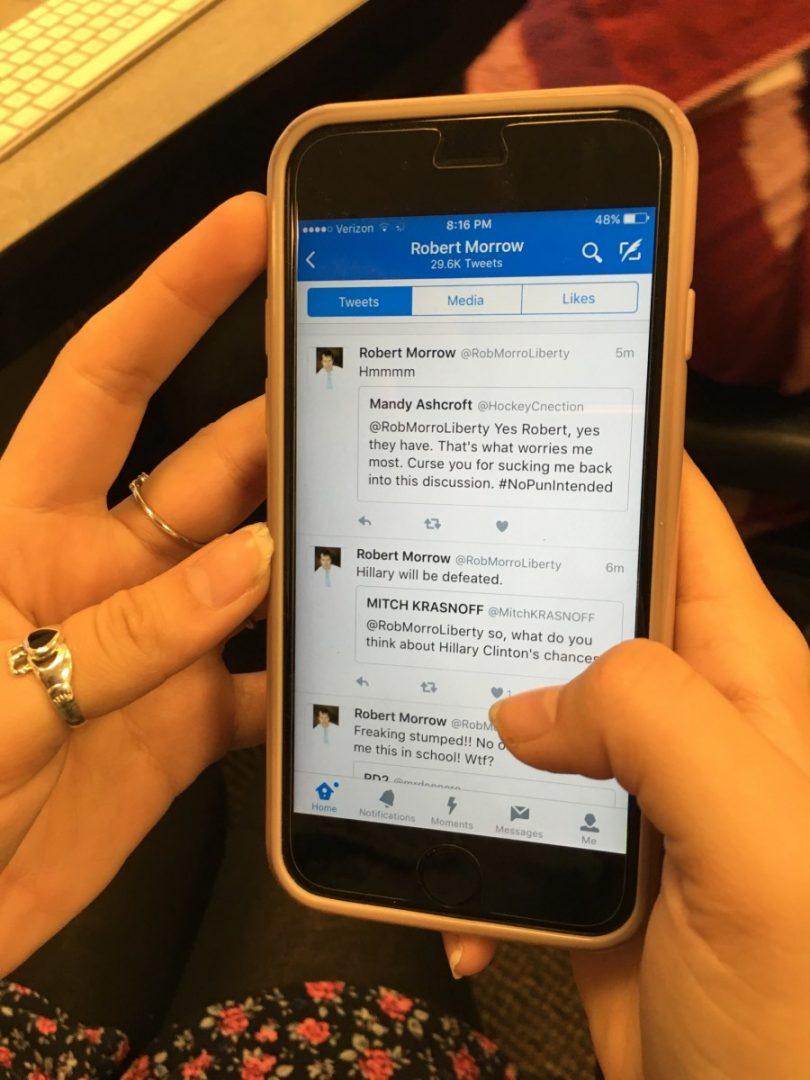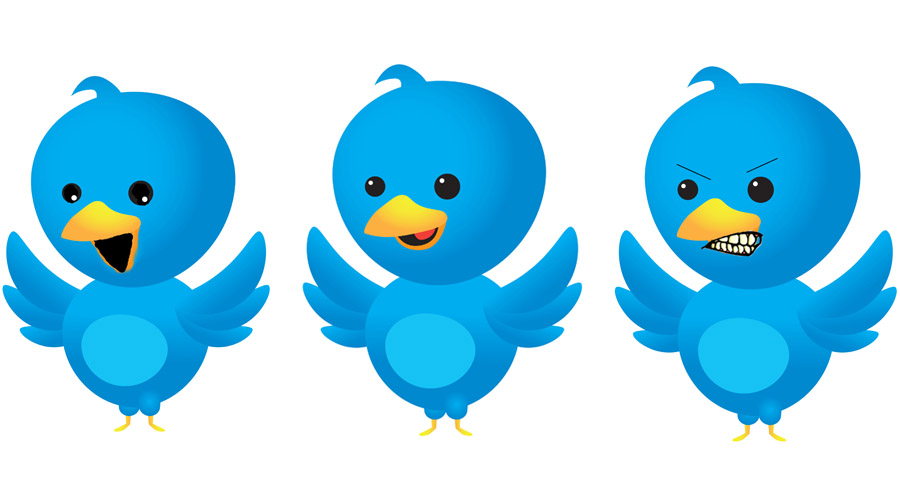I’ll Miss You, Twitter
Elon Musk’s recent acquisition of Twitter has ruined the app forever
December 7, 2022
Twitter is dead. Sure, you can still visit the website, and the tweets still show up, but it’s not the same as it was before Elon Musk, and I don’t think it ever will be again.
Musk has already tangibly worsened the site since he bought it in October. Many users have left. He unceremoniously fired over half of the staff, including much of the safety and content moderation teams, causing many other employees to quit in disgust. Previously banned users have been indiscriminately welcomed back, including Donald Trump. The stock value of the company has plummeted, and it’s quickly losing its credibility as a reliable platform. If there’s any technical issue with the site, there is no guarantee that there are any engineers left who know how to fix it.
Hate speech and misinformation have skyrocketed, advertisers have left and user access to the platform is often restricted for the gentlest criticisms of Musk. Erratic changes to the verification system, including the ability to buy verification checkmarks and the fluctuating appearance of an “Official” banner on truly verified accounts, make for a confusing user experience. Even if the site doesn’t stop functioning, it might easily become just like 4chan — the alt-right extremist boards are already happy about Musk.
The notion that Twitter as we know it is over has led me to realize just how much of my conception of “the internet” was truly only Twitter.
This week, journalist Matt Taibbi wrote a thread (at Musk’s behest) about Twitter’s handling of the Hunter Biden laptop scandal which gave a glimpse into the bleak future of Twitter: The thread is shoddily researched, hard to follow, doxxes a congressman and is designed to cause problems where there are none. Musk is now using this project to justify “looking into” other elections that he alleges Twitter influenced toward the left, such as Brazil’s recent presidential election.
There are many things I’ll miss about Twitter if (when) it becomes unrecognizable. I’ve never had a truer sense of the enormity of the human experience than on this platform. So often these days I feel at a loss in response to the news, but finding advice and solidarity on this silly little website makes me feel better in the face of increasingly baffling events. It’s like “The Dangerous Book for Boys” on how to navigate the crushing onslaught of modern life.
I’ve complained extensively about Twitter, and it no doubt has problems: fostering conspiracy theories, producing inane discourse and being a time-suck, to name a few. But my criticisms of Twitter have come from a place of belief in the platform’s importance and its ability to be better. The notion that Twitter as we know it is over has led me to realize just how much of my conception of “the internet” was truly only Twitter.
Twitter’s certainly not the only place with information, but it allows you to assemble specific people who come to you every day, place things in your lap, and say “I think this is cool. What do you think?”
Being on Twitter has affected the rest of my life. Its contribution to the discipline of meme formats has changed my sense of humor forever. I’ve found some of my favorite bands, writers and podcasts on the site, through both self-promotion and others gushing about their work. I’ve been able to tell the creators I love what their work means to me, and I’ve found like-minded people for any interest I’ve ever had. (There are few places in the world where I could immerse myself in an entire nation of people talking about My Chemical Romance at all hours of the day.)
I credit Twitter as the catalyst for my political education, and it’s where I found I wanted to major in political science. I found (mostly) nuanced, thoughtful explanations from a variety of voices talking about minimum wage, police budgets and alt-right extremism, things I might never have known I was interested in otherwise. Twitter’s certainly not the only place with information, but it allows you to assemble specific people who come to you every day, place things in your lap, and say “I think this is cool. What do you think?”
Where many other social media platforms throw content at me like uncooked spaghetti at a wall, Twitter lets me intentionally choose to start learning more about a person, event or broad topic.
It’s also a great starting point to find what issues in a field other people think are important. It saves me from sifting through tons of material about a subject that I may not have even known I was interested in on my own.
By giving me access to people with experiences far removed from my own life, Twitter has taught me not only how to care about people on an individual and community level, but also how to care about them in a way that actually helps. Obviously, people learned about the world before Twitter. But it scares me to think that I might never have known what I was missing.
During the pandemic, Twitter was a main source for reliable news about the virus, vaccinations and the government’s approach. I’m a little dismayed by the Centers for Disease Control and Prevention’s decision to abdicate their responsibility at a crucial moment by cowering to political pressure and relaxing nearly all guidelines despite continuing COVID-19 cases and deaths. So, I’ve turned to Twitter to learn about risks and strategies from medical research and personal experiences. I remember learning about long COVID-19 nearly a year ago on Twitter, frightened about the implications of people unmasking without knowing all the risks and stunned when few people I brought it up to offline knew what I was talking about.
The loss of the platform as a reliable, well-regulated space for this communication will undoubtedly have significant political consequences.
I also use the platform like a diary. I’ve tweeted over 13,000 times since July 2015, usually about incredibly mundane things, to a small audience of about a dozen of my friends and around 50 bots. Mostly, I expect no reply. I recognize that I should just take up journaling, but journaling doesn’t come with the off chance that I might persuade John Green to read one of my articles.
As someone considering a journalism career, I’m daunted by the prospect of pitching to editors, finding opportunities and sharing work without Twitter. The media industry is not what it once was, and Twitter was beginning to feel like a last resort for employment. Not only that, I’ve been able to follow and talk to industry professionals who provide a window into their lives, which has helped me imagine how I might want mine to look. Now, I’m left with only my Squarespace website and a dream.
The brutal deterioration of the American media landscape has also meant that government officials have, in recent years, resorted to using Twitter as a mass communication platform. The loss of the platform as a reliable, well-regulated space for this communication will undoubtedly have significant political consequences.
Twitter is a public utility, and a lone billionaire on a power trip shouldn’t be able to take it away.
Twitter has been one of the last social media platforms to still serve the same function and provide the same benefits as it did when I joined seven years ago. Over the past few years, it has been a refuge from TikTok, for which I somehow feel too old already. Instagram becomes more dismal by the day, overtaken by attempts to clone TikTok. I love Tumblr, but there aren’t enough people to serve the same “town square” function as Twitter. Mastodon instills me with a profound sense of dread. For my purposes, Twitter was the best of what social media was ever going to have to offer. There are promising new social media platforms such as BeReal and , but you’re never going to learn about urban destruction on BeReal. That’s not its purpose.
We can’t afford to lose this resource, particularly as the country hunkers down for a renewed onslaught of book-banning, “anti-woke” curriculum and fascism. Twitter is a public utility, and a lone billionaire on a power trip shouldn’t be able to take it away. The platform has kept people informed during crises like storms, wildfires and mass shootings. It has also inspired collective action and community organizing in a year with the most labor strikes in centuries. As so many organizers say, we keep each other safe, and within the increasingly fractured, individualized nature of American society, there are so few places left to do that anymore. People across the world gather on Twitter, hunched closely to their screens, connected by the bird app in a world alone.
Musk is not a genius, and he’s not going to usher in some enchanting new era of free speech to Twitter.
Musk is not a genius, and he’s not going to usher in some enchanting new era of free speech to Twitter. He’s just a poster — a selfish poster who needs so badly for everyone to laugh at his “I can haz cheeseburger”-adjacent memes that he’ll go into inconceivable debt to buy the entire platform.
I’ll stay until the bots and the Nazis take over. Where else would I go to watch the world burn? Of course, I might well be overreacting — I lived years without Twitter, and I can do so again. The world will still turn. But I’ll still remember what we had and what we lost.














Concerned Citizen • Dec 30, 2022 at 10:49 pm
Actually This has been the best thing to have happened to twitter in a while. Its common knowledge at this point that Twitter was always censoring and shadowbanning individuals that didnt violate any terms of service or regulations, simply on the account of having wrong political opinions. As you said yourself, twitter is public square, and thus it has responsibility of ensuring every voice is heard, no matter how much it makes you angry , as that is the only way our sacred democracy can function – with every citizen having a voice. Instead of cowardly banning voices we disagree with, we should amplify them in an attempt to refute them logically through merit and reasoning, as this shows we are open to dialogue and dont run away from disagreements. At the end of the day, we should Thank Elon Musk for standing up to the principles that made America so great in the first place, those of open good faith dialogue, and freedom of expression. To that we publicly say, Thank You Elon, and may your genius treat you well.